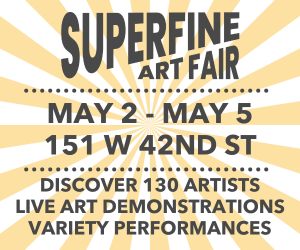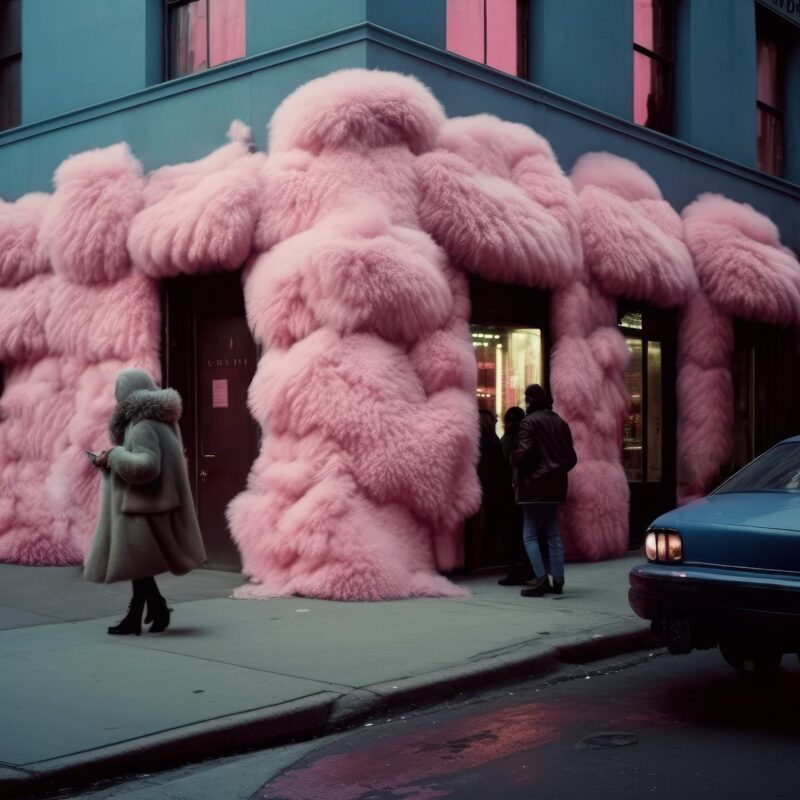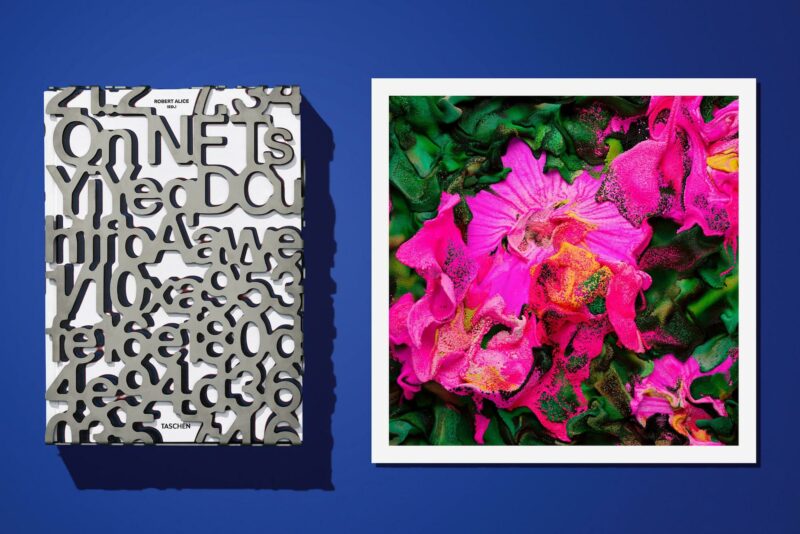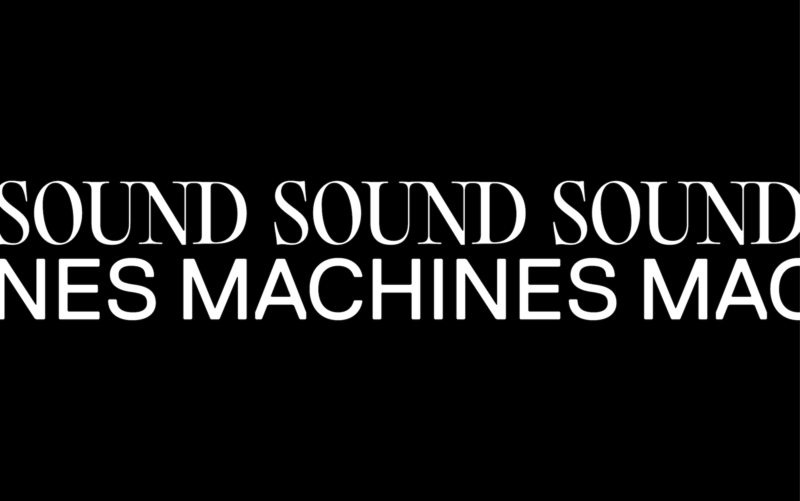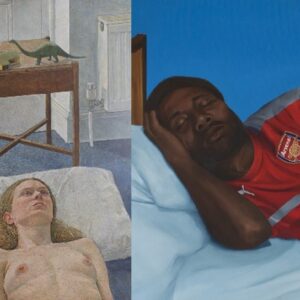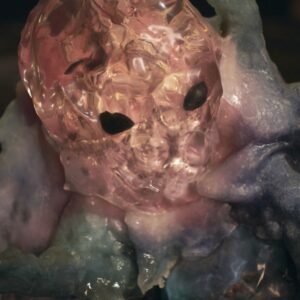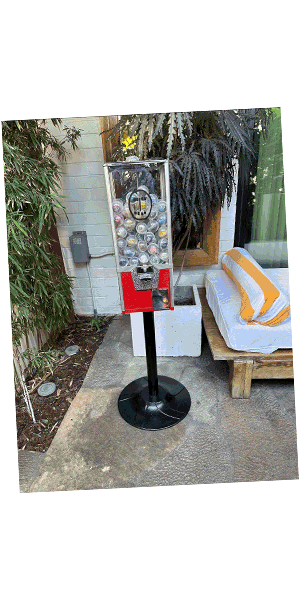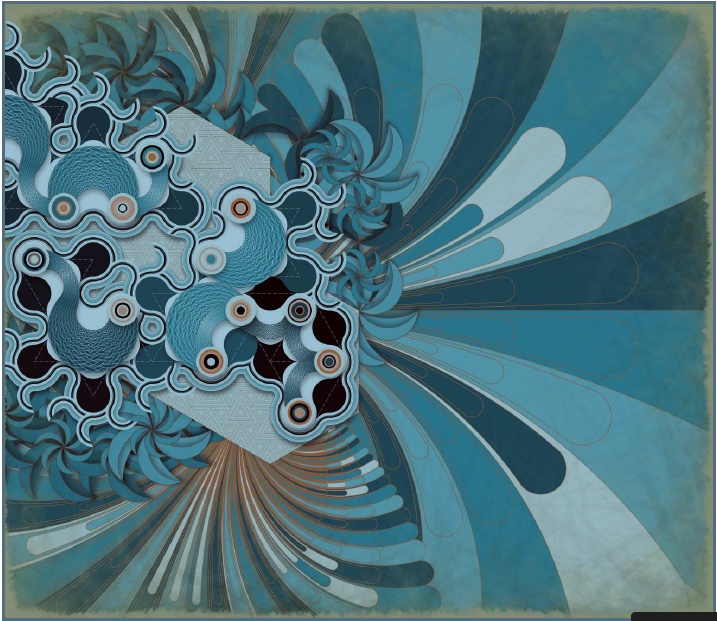
The art on the walls is not the art, but the backdrop. It is here to signal the launch of a work comprised of NFTs, Quasi Dragon Studies by New York artist Harvey Rayner.
His prints here are strikingly large, impossibly complex, compiled in absorbing layers. With their looping and sinuous forms, they evoke traditional Chinese painting. Rayner’s dragons seem to pivot round googly eyes, to expand in all directions as if directed by Benoit Mandelbrot. Colour, subtly graded, comes with a painterly palette. Yet there is no paint. What painter could render this machinic imbroglio? It would take a mathematician plus an artist, but Rayner appears to be both.
The well-dressed creator is the spry, smiling guru at the heart of this gathering. In the realm of the NFT, his lifelong passion for geometry appears to be paying off. Years he allegedly spent meditating for four to five hours every day have translated into ready sales. And leaving art school, putting away his brushes and adopting the medium of code has let him forge new paths with a new medium.
Pioneering formats do not, as he puts it, “come along every day”. This art lives on the hard drive and the screen; the stuff on the walls here is the byproduct.

To purchase one of Rayner’s NFTs is to take possession of a digital ‘tile’, together with its copyright. The standalone image may be eye-catchingly pretty but its capacity to tesselate with further tiles is what makes it dynamic and, one supposes, new. Involving collectors in the work of co-creation, Rayner is exploiting the dynamic potential for NFTs to interact and change over time. Non-Fungible Tokens not only present a new way to affix authenticity and ownership history into digital-format artworks, they also reimagine what art can be. This is already a cliché. NFTs casualise collection and trading, introduce rampant gamification, and, if you have the money, its makers invite you to join a community of owner-investors with whom you can interact.
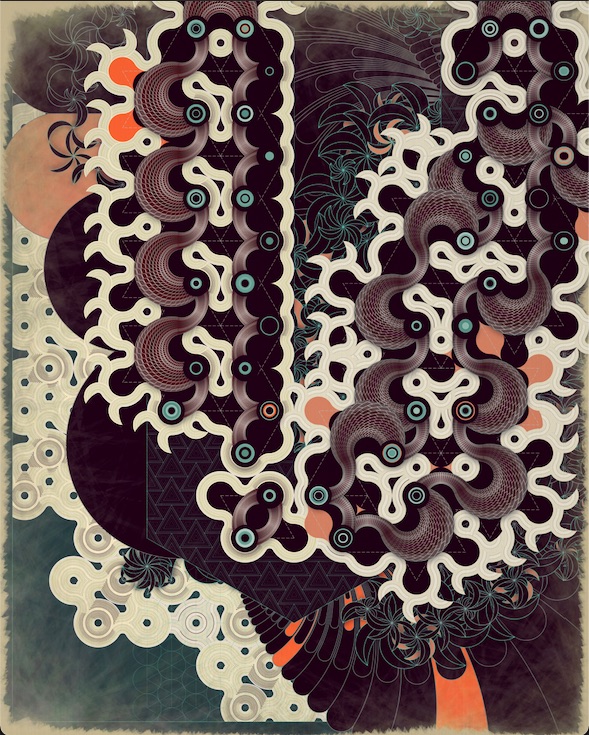
The IRL art world might contain some of those elements, but frivolity and speculation at the auction house is usually balanced by relevant subject matter, critical discourse and cultural heft. Rayner’s NFTs offer Buddhist symbolism and a sublime sort of beauty, proving enough to justify space in a virtual wallet, but then what? A web3 project at the nearby Serpentine, currently showing, invites you to mint an NFT by playing a video game. But in this case, as part of a multi-authored project with the stated aims to decentralise, decolonise and queer the digital realm.
Rayner meanwhile is painting in code and inviting an audience to play and perhaps profit with the results. The operations of chance and the self-negation of Buddhist thought have both made prior appearances in the realm of modern art. Indeed, computer-generated art has a legacy going back more than 50 years. But the enthusiasm of a collaborative audience, more comfortable buying up files than framed works, feels very new. Quasi Dragon Studies warrants attention, but anthropologists, philosophers of aesthetics, and evangelists of digital might have as much to say as art critics.
Verse Solos: Quasi Dragon Studies by Harvey Rayner was at the Pavilion Gallery, Cromwell Place, between July 26-30 2023. The work goes on sale on 22nd August 2023. All images courtesy of and copyright verse.works/exhibitions/quasi-dragon-studies
